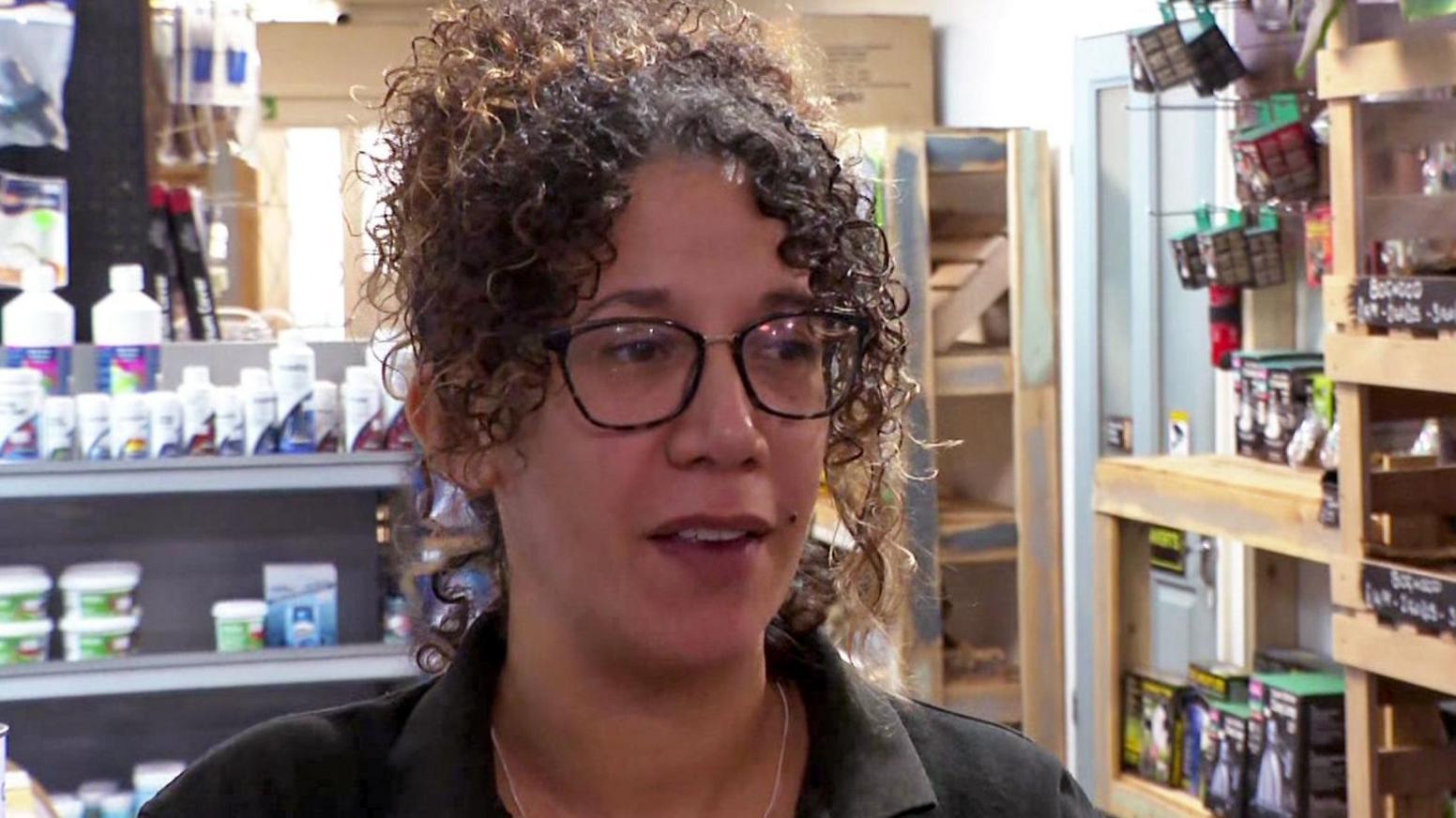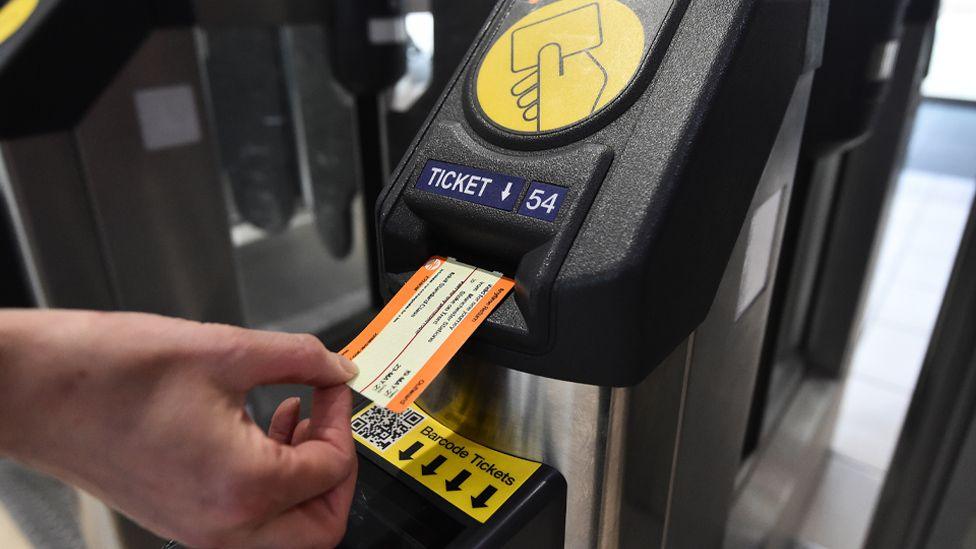The six minute train journey that became a long legal nightmare

Sarah Cook was threatened with huge fines and jail over a train ticket
- Published
It should have been a quick, simple rail journey.
Nearly two years ago, Sarah Cook hopped on a train at Wombwell Station, just outside her pet shop in South Yorkshire, to travel one stop to Barnsley. A mere six minutes.
"I tried to buy a ticket on the platform and the machine wouldn’t accept my bank card," she told the BBC. "I thought: 'It doesn’t matter, the train is here, I’ll buy one on the train.'"
Unfortunately, she could not see a guard on the train and when Ms Cook reached the station, everyone's tickets were being scanned.
When she tried to buy a ticket she was told it was "too late". So she was fined.
"The [penalty fare] I appealed 'cause it was £20 which seemed a lot for a couple-of-pound journey and I never heard anything back."
But that wasn't the end of the story.
Nearly a year to the day later in 2023, Ms Cook received a letter telling her she was being fined £500.
"That escalated to going to court," she says. "Filling out a lot of forms, pleading guilty, pleading not guilty, the threat of a criminal record, the threat of a bigger [penalty fare], the threat of jail time, up to two years."
In the end, she did have to fork out some money. "After the threat of everything else, it was a ginormous £4," she says.
It turns out Ms Cook wasn't the only one caught out.
Last week, a ruling by the chief magistrate for England and Wales found the prosecutions by rail companies against Ms Cook and five other people were "unlawful" and declared them void.
As a result, an estimated 74,000 other cases will be re-examined. If rail companies are found to have acted unlawfully in those instances, prosecutions could be quashed and monies could be refunded.
For Ms Cook the ruling "feels good".
"It’s a good win for all involved," she says. "I’m just sad it took this long to get it sorted."
So who could be in line to have their convictions quashed and get a refund?
What is the issue?
The ruling , externalapplies to prosecutions for alleged fare evasion made by several rail companies: Arriva Rail North (which ceased to exist in 2020 when its franchise was terminated), Avanti West Coast, Greater Anglia, Great Western Railway, Merseyrail, Northern and Transpennine.
The prosecutions took place between 2018 and 2023, and one of the key issues is that they used something called a single justice procedure (SJP).
Under this procedure, a case is dealt with by a single magistrate and a legal adviser behind closed doors.
This is in contrast to an open court where you might have three magistrates hearing a case and the public can attend.
SJPs were introduced in 2015 as a speedier way to prosecute "minor" criminal offences.
The following year, rail companies were allowed to start using SJPs to privately prosecute people who they claimed had dodged fares.
The problem is that rail companies used the procedure to prosecute offences listed in the Regulation of Railways Act 1889.
They are not allowed to do this.
Rail companies can only use certain by-laws to pursue people they claim have not paid a rail fare - not the Regulation of Railways Act.
I've been fined, am I owed money?
That depends - and it is very specific.
In short, if you were prosecuted for alleged fare evasion through the single justice procedure for offences under the Regulation of Railways Act 1889 you may be entitled to a refund for penalties you have paid.
The way to find out if you might be due a refund is to go back to your paperwork.
Nathan Seymour-Hyde, a partner at Reed Solicitors, says that the original court summons will say "single justice procedure" on it.
Then check the charges.
He says to see if there are any Regulation of Railways Act offences listed on there.
But what if you don't have the documents?
Mr Seymour-Hyde says: “Sometimes people just didn’t get that paperwork. They’ve moved addresses and then they eventually get chased by the court."
If you do not have the relevant papers, you can contact the court and the rail company that prosecuted you. They should send you the documents.
Or you could wait until HM Courts and Tribunals Service contacts you to find out if you have been affected.
What should I do next?
You should wait - but don't expect a quick decision.
Mr Seymour-Hyde reckons it is a "big mess to untangle".
"There are costs, compensation and the [financial penalties] that were paid by each person that need to be returned.
"Many people will have moved address. So it's going to be a very challenging process to just pinpoint where people are and then try to return the money to them."
Before all of that, the court services, the Department for Transport and the train companies have to agree a list of all the cases that could potentially be declared void.
The Department for Transport says that the courts services will use court records and case information held by rail companies "to contact those affected over the coming weeks about the hearing and decision".
The government advises that people will be contacted directly and told what will happen next "including if you have paid some or all of a financial penalty".
For those who haven't paid anything, they will also be contacted if their conviction is declared invalid and to confirm that the court record is corrected.
Related topics
- Published15 August 2024
